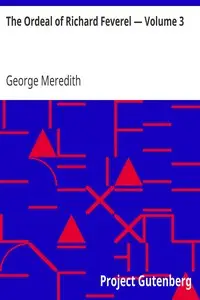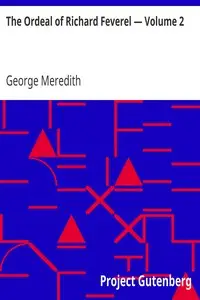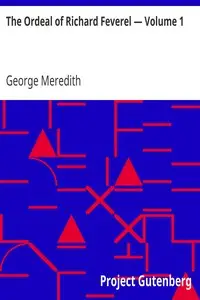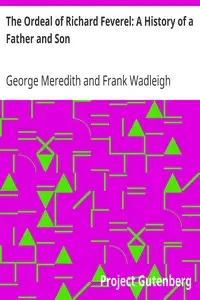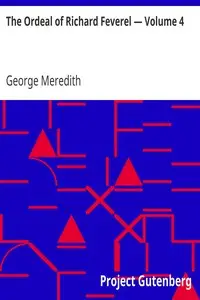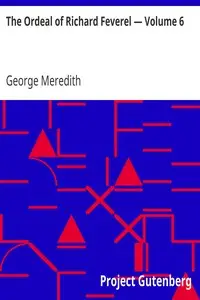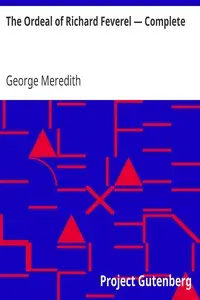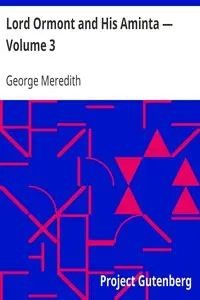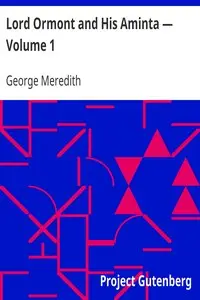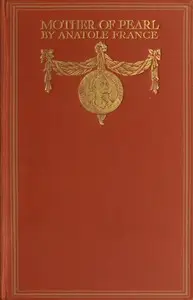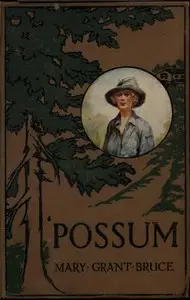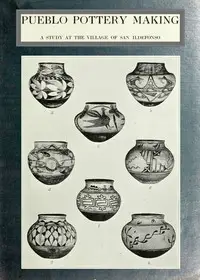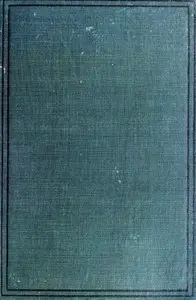"The Ordeal of Richard Feverel — Volume 5" by George Meredith is a continuation of a 19th-century story about a young man named Richard Feverel, who struggles with who he is, what his family expects of him, and the confusing nature of love, especially his relationship with his wife, Lucy, and his dad, Sir Austin Feverel. The story combines romance with looking at society and thinking about life, showing the complicated views of the Victorian era on marriage and its problems. The volume starts with Richard and Lucy, who are newly married, having a fun breakfast before a sailing race, but their happy marriage is contrasted by problems with Richard's distant dad. They meet new people like Adrian and Lord Mountfalcon, revealing social issues, especially focusing on Richard’s stern father. Lucy wants to go with Richard to a yachting event, which brings their dreams together while emphasizing the continuing tension with Sir Austin, setting the stage for future problems and themes of family, social rules, and the meaning of love.
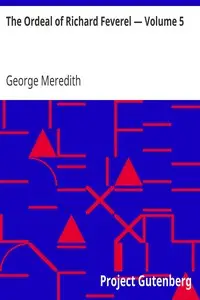
The Ordeal of Richard Feverel — Volume 5
By George Meredith
Amidst yacht races and high society mingling, a young couple's blissful marriage faces the looming shadow of a disapproving father and the complexities of societal expectations.
Summary
About the AuthorGeorge Meredith was an English novelist and poet of the Victorian era. At first, his focus was poetry, influenced by John Keats among others, but Meredith gradually established a reputation as a novelist. The Ordeal of Richard Feverel (1859) briefly scandalised Victorian literary circles. Of his later novels, the most enduring is The Egoist (1879), though in his lifetime his greatest success was Diana of the Crossways (1885). His novels were innovative in their attention to characters' psychology, and also portrayed social change. His style, in both poetry and prose, was noted for its syntactic complexity; Oscar Wilde likened it to "chaos illumined by brilliant flashes of lightning". Meredith was an encourager of other novelists, as well as an influence on them; among those to benefit were Robert Louis Stevenson and George Gissing. Meredith was nominated for the Nobel Prize in Literature seven times.
George Meredith was an English novelist and poet of the Victorian era. At first, his focus was poetry, influenced by John Keats among others, but Meredith gradually established a reputation as a novelist. The Ordeal of Richard Feverel (1859) briefly scandalised Victorian literary circles. Of his later novels, the most enduring is The Egoist (1879), though in his lifetime his greatest success was Diana of the Crossways (1885). His novels were innovative in their attention to characters' psychology, and also portrayed social change. His style, in both poetry and prose, was noted for its syntactic complexity; Oscar Wilde likened it to "chaos illumined by brilliant flashes of lightning". Meredith was an encourager of other novelists, as well as an influence on them; among those to benefit were Robert Louis Stevenson and George Gissing. Meredith was nominated for the Nobel Prize in Literature seven times.

